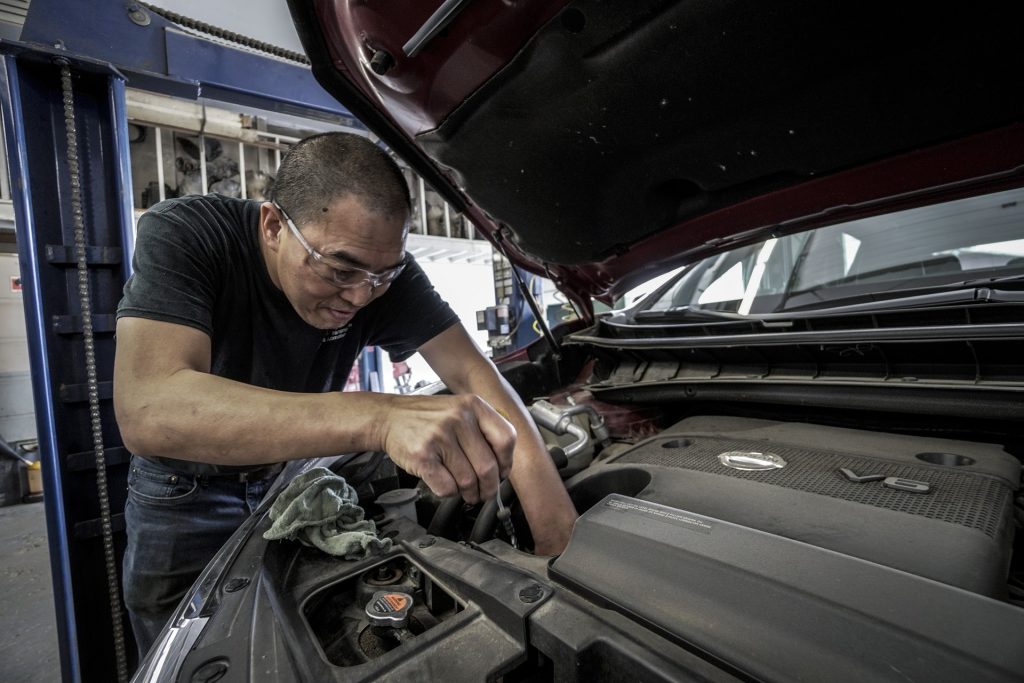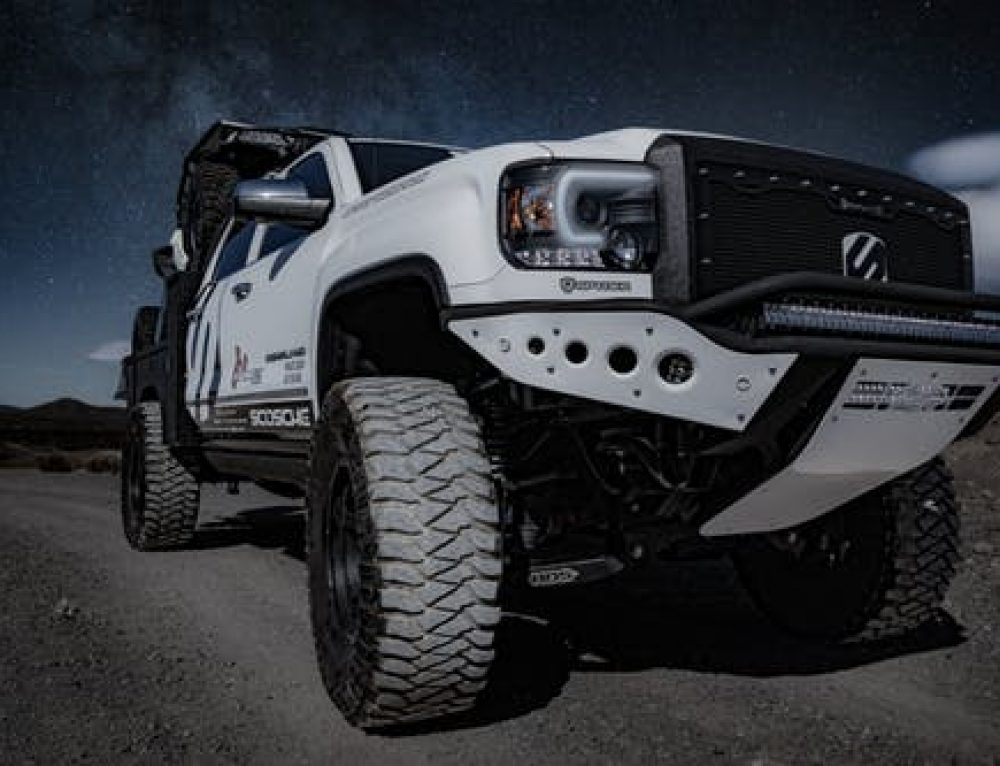Diesel trucks maintenance differs from maintaining a petrol-powered car. There are many distinctions between the two. Diesel engines do not use electrical components in the ignition, nor do they have moving parts that wear out fast.
Because of these distinctions, maintaining a diesel engine is slightly less expensive. Maintaining your diesel trucks will help it last longer. Follow the tips shared below to maintain your diesel vehicle to get the most out of it.
Clean Your Vehicle
Cleaning the exterior of your truck will do more than just make it neat. It will also protect the paint by eliminating any harmful debris or dust. When you clean your truck during extreme weather, you protect it from all kinds of damage.
Cleaning the interior of your truck is also a great maintenance habit. It leaves your truck looking new. It also protects it from stains that may accumulate and make your truck look old and shabby. Don’t forget to wipe the base of your truck. It’s just as crucial as the rest of your truck’s components.
Watch Your RPM
The Revolution Per Minute of your truck, if properly maintained, keeps your turbocharger in good condition. It also prevents vibrations from affecting the gearbox. Hence, it is very important to monitor your RPM. Ensure that it is moderate at all times.
Pay More Attention to Your Truck During Winter
Your truck needs special attention during the coldness of winter. Don’t leave it out in the cold when it’s low on fuel. Also, ensure your tank is always full. The cold can make the fluids in the truck coagulate and it will damage a lot of things in it.
Change Your Oil and Oil Filter Regularly
Not changing your oil and oil filter regularly can quickly destroy your diesel-powered truck engine. Old and unclean oil can choke your engine. This will cause needless friction and heat. Every car manufacturer suggests changing the oil after a specified number of miles.
Check your vehicle manual for set intervals for your truck. Engine oil serves several purposes, including engine protection, cleansing, and cooling. If you don’t follow the suggested oil change intervals or if you don’t replace your engine oil at all, you stand the risk of damaging your engine.
Check Fluid Levels
Engine oil is not the only fluid to check in your diesel trucks. Check the engine coolant, power steering oil, brake oil, and windshield washer. Engine coolants keep the engine at an ideal temperature.
The temperature of your engine is critical for engine performance. Power steering liquid is also a hydraulic fluid. It is to move the different components of your truck’s steering wheel. Changing the power steering oil can extend the durability of your truck’s power steering pump and rack.
Check Your Exhaust System Frequently
Your truck’s exhaust system is critical to both the health of your vehicle and the environment. Therefore, it needs regular inspection. Check the exhaust system regularly to spot problems early.
The regular use of the vehicle will certainly result in some damage. The harsh chemicals that pass through the exhaust system, as well as road debris and corrosion, can all cause harm. If your check engine light comes on, don’t put it off until you figure out what’s wrong.
Repair it as quickly as possible. Keep an eye out for leakage and rust inside and outside your exhaust pipe frequently. The maintenance of an exhaust system is straightforward. You just need to pay attention.
Use Diesel Treatment
Whenever you fill up your diesel tank, consider adding a bottle of diesel treatment. Diesel treatment stops the contaminants found in diesel. It prevents the contaminants from entering your engine. These contaminants can cause a lot of damage.
Rotate Your Tires Whenever You Change Your Engine Oil
Truck tires wear disproportionately according to the gearbox of your truck. Rotating your tires each time you replace your oil ensures even wear. Most times, it is the front tires that get the most wear. However, this depends on how you use your truck.
Rotating your tires not only extends the life of the tire. It also makes for a smoother ride. You will find the recommended tire rotation pattern in your truck’s manual.
Examine Your Truck’s Gasket
The gaskets on a diesel truck engine function under harsh circumstances. Thus, examine it frequently. Also, you need to inspect the fastening bolts. This will help to minimize spills and leakages.
If you discover a leaky gasket, change all of them at once. Chances are if one of them is leaking, the others are also due for a change.
Review Your Vehicle’s Manual
Spend some time studying the manual that came with your truck. Go through the maintenance section. There are general maintenance practices for diesel trucks. However, there may be specific information, based on your vehicle, in the manual.
You will miss this if you don’t go through the manual. Checking the suggested maintenance schedule for your vehicle is a great way to know how to care for your diesel-powered truck.
Book Maintenance Appointments With a Professional
The durability and performance of your diesel trucks depend on you. Constantly using your vehicle without sufficient maintenance is dangerous. Regular engine truck maintenance isn’t tough, but it’s well worth it.
The benefits outweigh the costs. Maintenance will require time and money, but isn’t it better to spend a paltry amount of time and money on maintenance than spend a huge amount on full repair?
You don’t have to wait until your diesel trucks breaks down. You could get stranded in the middle of nowhere when that happens. Book appointments with an automobile maintenance service before that happens.
Do you hear any weird sounds or observe a slight change in the way your vehicle moves? You should contact a professional diesel trucks repairer. Your vehicle may vibrate slightly, whether in drive or idle mode. However, persistent vibration could show mechanical issues. When this happens, see a professional. We are your number 1 diesel repair shop in Phoenix, Arizona. We are experts in all kinds of diesel vehicles. Contact us to book an appointment or get professional advice for your diesel trucks maintenance.
Frequently Asked Questions
How does diesel trucks maintenance differ from petrol-powered car maintenance?
Diesel engines lack electrical ignition components and have fewer moving parts that wear out quickly. This simplicity makes diesel trucks less expensive to maintain compared to petrol-powered cars.
Why is cleaning my diesel trucks important?
Regular cleaning protects your truck’s paint from harmful debris, prevents damage during extreme weather, and keeps the interior free of stains. Cleaning the truck’s base is also essential to maintain its condition.
What is RPM, and why should I monitor it?
RPM (Revolutions Per Minute) indicates how hard your engine is working. Keeping your RPM at a moderate level prevents excessive strain on the turbocharger and gearbox, ensuring smooth performance.
How can I protect my diesel trucks during winter?
In cold weather, keep your fuel tank at least half full to prevent condensation and coagulation of fluids. Low fuel levels can lead to significant engine damage.
How often should I change the oil and oil filter in my diesel trucks?
Follow the manufacturer’s recommendations in your vehicle manual for oil change intervals. Regular oil changes prevent engine choking, reduce friction, and keep the engine running efficiently.







